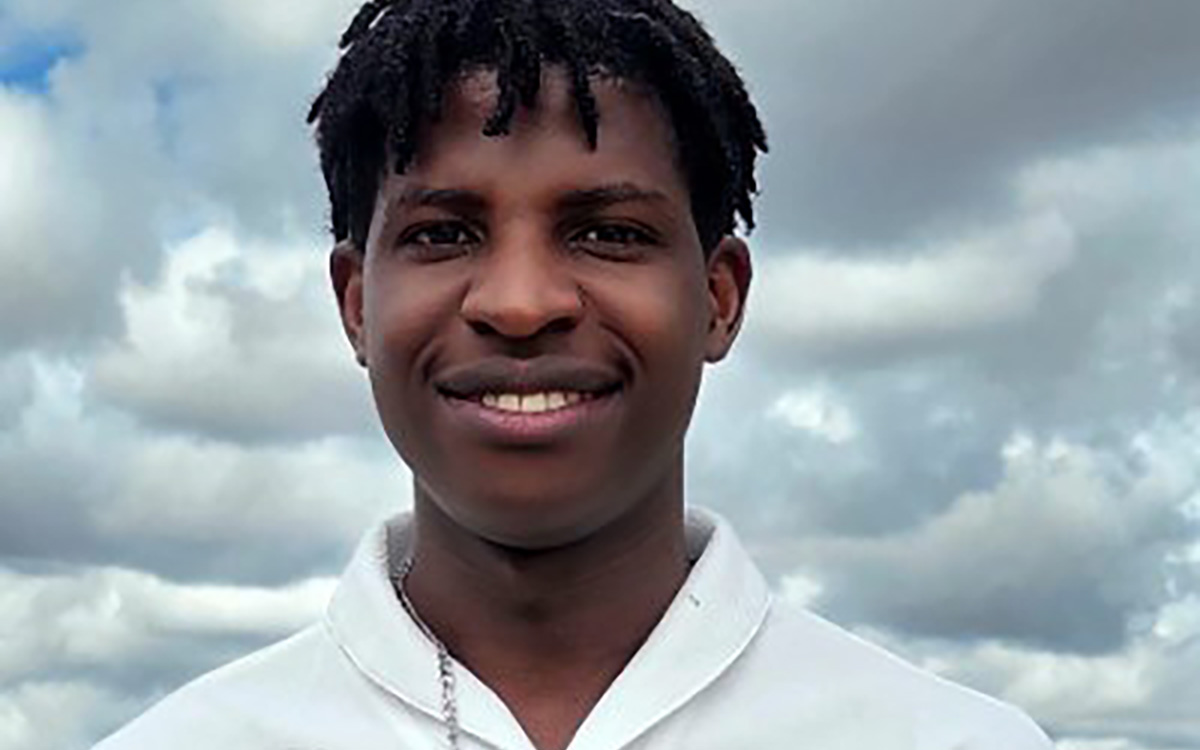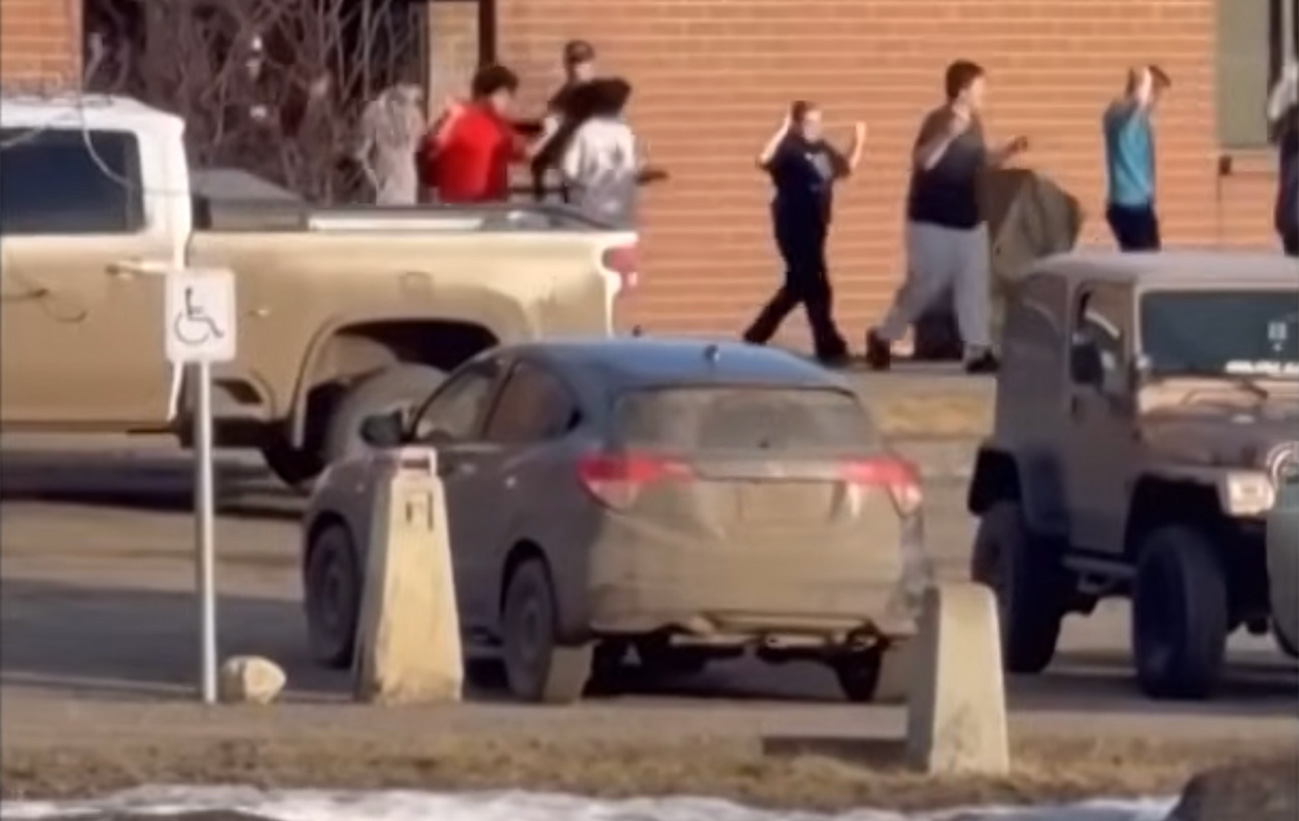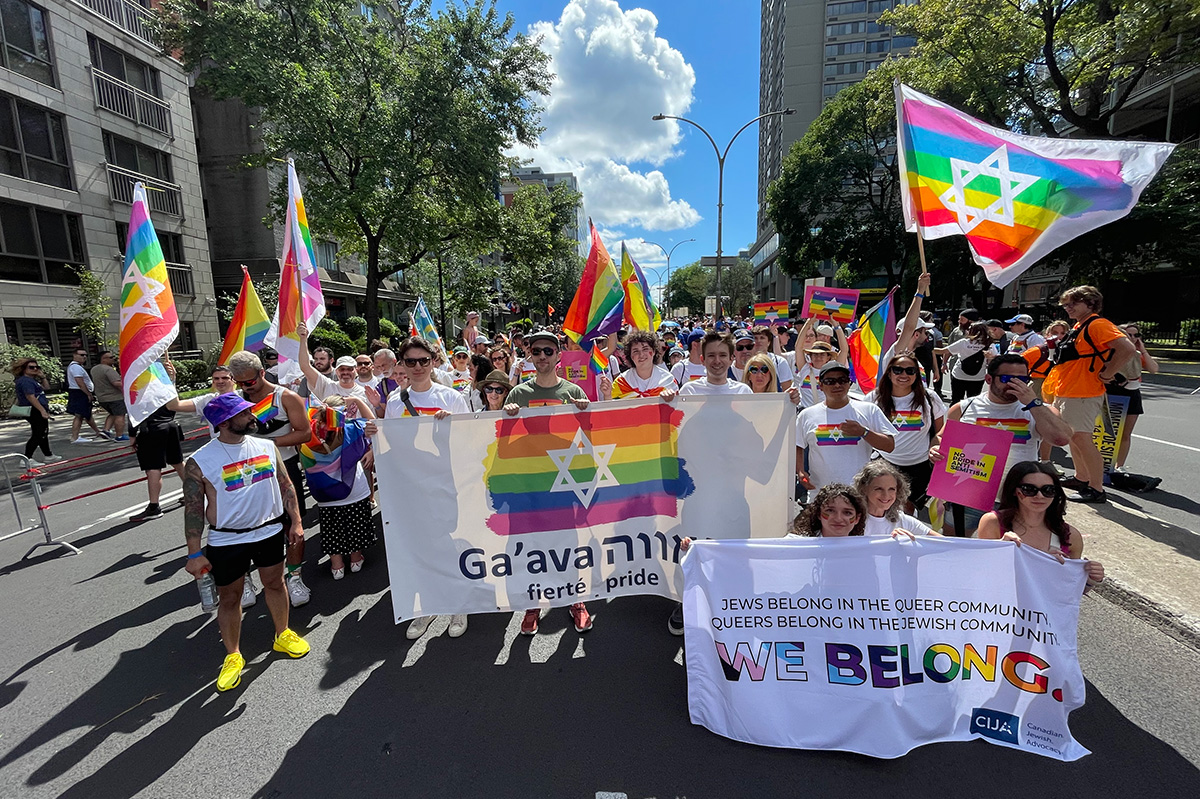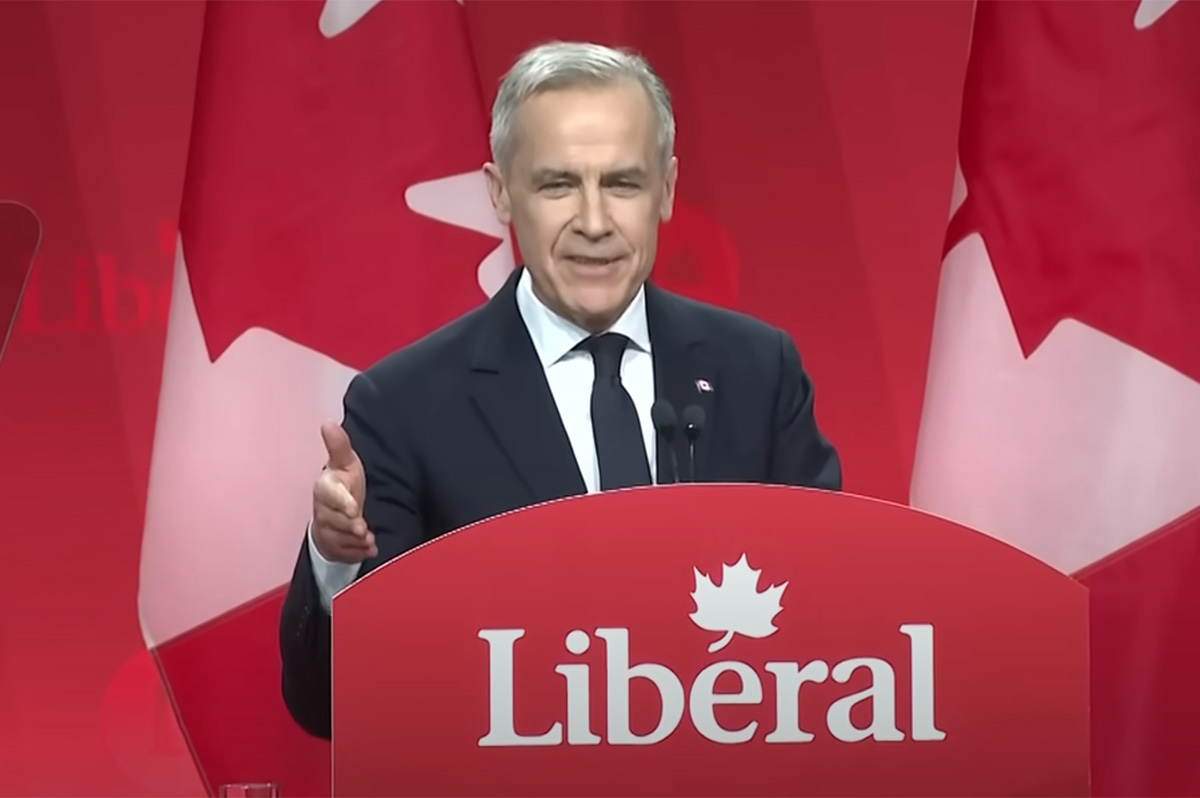Canada
Prominent Ugandan activist asks for asylum in Canada
Steven Kabuye stabbed outside his home on Jan. 3

A prominent Ugandan activist who was stabbed outside his home earlier this year has asked for asylum in Canada.
Two men on motorcycles attacked Steven Kabuye, co-executive director of Coloured Voice Truth to LGBTQ Uganda, on Jan. 3 while he was going to work.
Kabuye posted a video to his X account that showed him on the ground writhing in pain with a deep laceration on his right forearm and a knife embedded in his stomach.
He spoke with the Washington Blade from Kenya on Jan. 8 while he was receiving treatment. Kabuye arrived in Canada on March 6.
Kabuye during an April 27 telephone interview with the Blade from Canada said Rainbow Railroad, a group that works with LGBTQ and intersex refugees, helped him “get away from the dangers that were awaiting me in Kenya and Uganda.” Kabuye said he asked for asylum in Canada because he “cannot return to either Uganda or Kenya.”
“The Ugandan government fails to get the culprits who wanted to end my life,” he said.
Kabuye told the Blade that Ugandan police officials threaten his colleagues when he publicly speaks about his case.
“Every time I come up and demand for the police to act out, they end up calling the colleagues of mine that remain in Uganda and intimidate them so they can scare me off, so they can make me pack up and keep quiet,” he said.
Ugandan President Yoweri Museveni last May signed his country’s Anti-Homosexuality Act that, among other things, contains a death penalty provision for “aggravated homosexuality.”
Canadian Foreign Minister Mélanie Joly described the law as a “blatant violation of human rights and fundamental freedoms of LGBTQ+ Ugandans.”
The U.S. has sanctioned Ugandan officials and removed the country from a duty-free trade program. The World Bank Group also suspended new loans to Uganda in response to the Anti-Homosexuality Act.
The Ugandan Constitutional Court last month refused to “nullify the Anti-Homosexuality Act in its totality.” A group of Ugandan LGBTQ activists have appealed the ruling.
“The previously concluded ruling did not make a difference,” said Kabuye.
Kabuye told the Blade he has an interview with Canadian immigration officials on Friday. He said he will continue to advocate on LGBTQ Ugandans from Canada.
“I’m very grateful to Rainbow Railroad,” said Kabuye. “They’ve still given me a chance to continue my advocacy.”
Canada
Shooter who killed 7 people inside Canada school was transgender
Advocacy groups have condemned efforts to link trans people to mass shootings

Canadian authorities on Wednesday said the person who killed seven people and injured more than two dozen others at a school in Tumbler Ridge, British Columbia, the day before was transgender.
Dwayne McDonald, the deputy commissioner for the Royal Canadian Mounted Police in British Columbia, during a press conference said Jesse Van Rootselaar, 18, “was born as a biological male who approximately … six years ago began to transition as female and identified as female both socially and publicly.” McDonald added it is “too early to say whether” the shooter’s gender identity “has any correlation in this investigation.”
The shooter died by suicide, and authorities found her body inside the school.
“We have a history of police attendance at the family residence,” said McDonald. “Some of those calls were related to mental health issues.”
Egale Canada, the country’s LGBTQ and intersex rights group, on Wednesday said it is “heartbroken by the horrific shooting in Tumbler Ridge.”
“Our deepest condolences are with the victims, their families, and the entire community as they navigate unimaginable grief,” said the group in a statement. “We unequivocally condemn this act of violence. There is no place for violence in our schools or in our communities. At this profoundly difficult time, we hold the people of Tumbler Ridge in our thoughts and stand in solidarity with all those affected.”
Mass shootings are relatively rare in Canada, unlike in the U.S.
GLAAD notes statistics from the Gun Violence Archive that indicate trans people carried out less than 0.1 percent of the 5,748 mass shootings in the U.S. between Jan. 1, 2013, and Sept. 15, 2025. The Human Rights Campaign, the National LGBTQ Task Force, and other advocacy groups last August condemned efforts to scapegoat the community after a trans woman shot and killed two children and injured 17 others inside the Annunciation Catholic School in Minneapolis.
Canada
Montreal Pride parade organizers reverse ban on Jewish groups
Initial decision left Ga’ava, Center for Israel and Jewish Affairs ‘deeply shocked’

Organizers of Montreal’s Pride parade have reversed their decision to ban Jewish groups from participating in the annual event.
The Montreal Gazette reported Fierté Montréal on July 30 informed Ga’ava, a group that is affiliated with the Toronto-based Center for Israel and Jewish Affairs, it could not march in the Aug. 10 parade.
Ga’ava in a statement said it and the Center for Israel and Jewish Affairs “were deeply shocked to learn today from Montreal Pride that LGBTQ+ Jews and their allies will be excluded from the 2025 Pride Parade.” Fierté Montréal earlier in the day in its own statement condemned “the ongoing genocide in Gaza, expresses solidarity with the Palestinian people, and calls for the lives of 2SLGBTQIA+ individuals in Palestine, and everywhere in the world — to be respected and protected.”
“Fierté Montréal’s position on violence of any kind inflicted upon marginalized populations or communities — especially 2SLGBTQIA+ communities — has always been clear: we denounce all forms of violence, we amplify the voices of queer communities who, on our stages and in our spaces, express their support for oppressed peoples, particularly the Palestinian people, and their opposition to genocide,” said Fierté Montréal. “The work of Fierté Montréal is rooted in a long-standing movement to fight oppression, and we acknowledge the pain expressed by queer communities in Montréal since the beginning of the conflict in Gaza.”
“Accordingly, and in line with our zero-tolerance policy for hate speech and incitement to violence, and to ensure that the Fierté Montréal Festival remains a safe and celebratory space for everyone, the board of directors of Fierté Montréal has made the decision to deny participation in the Pride Parade to organizations spreading hateful discourse,” it added. “This measure is taken in the context of a complex geopolitical situation and stems from our commitment to preserving the emotional and physical safety of our communities.”
Five Canadian MPs are among those who sharply criticized Fierté Montréal’s decision.
Bernard Truong, the group’s former board chair, resigned on Monday. The Montreal Gazette on Tuesday spoke with his successor, Marlot Marleau, about the decision to reinvite Ga’ava and the Center for Israel and Jewish Affairs to participate in the parade.
“We realized the decision was seen as excluding the entire Jewish community. That was never the intent,” Marleau told the Montreal Gazette. “We’re sorry for making them feel unwelcome.”
“LGBTQ+ Jews are happy that Montreal Pride walked back its politically motivated decision to oust the Jewish community from the Pride Parade,” said Ga’ava President Carlos A. Godoy on Tuesday in a statement he sent to the Washington Blade. “Either you’re inclusive or you’re not. LGBTQ+ Jews have to bring their full authentic selves to the parade — we can’t ask Jews to separate their identities and attachments. LGBTQ+ Jews belong in Pride parades.”
Canada
Liberal Party wins Canadian election
Prime Minister Mark Carney railed against US tariffs, sovereignty threats

Canadian Prime Minister Mark Carney’s Liberal Party won the country’s federal election that took place on Monday.
The Canadian Broadcasting Corporation notes the Liberals won 169 seats in parliament, compared to the 144 the Conservative Party won. The Liberals need 172 seats for a parliamentary majority.
Liberal Bruce Fanjoy defeated Pierre Poilievre, an anti-LGBTQ MP from Ontario who is the Conservatives’ leader, by a 50.6-46.1 percent margin.
The Liberals last month elected Carney to succeed Justin Trudeau as the country’s prime minister. Monday’s election took place against the backdrop of growing tensions with the U.S. that stem from tariffs the Trump-Vance administration has imposed against Canada, and suggestions the country should become the 51st state.
“Our strength lies in our resolve to work together,” said Carney on Tuesday in a post to his X account. “United, we will build Canada strong.”
Thank you, Canada.
Our strength lies in our resolve to work together. United, we will build Canada strong. pic.twitter.com/uN6h4LUAEP
— Mark Carney (@MarkJCarney) April 29, 2025
Egale Canada, the country’s largest LGBTQ and intersex rights group, earlier this year announced it will not attend WorldPride and other events in the U.S. because of the Trump-Vance administration’s anti-transgender policies and “economic warfare and threats to our national sovereignty.”
“Democracy thrives when people engage, and our voices are used in a way where we can say we voted with pride,” said Egale Canada on Tuesday.
“As the new parliament takes shape, we recognize that the journey toward equity and inclusion — especially for 2SLGBTQI communities — extends far beyond election day,” added the group in its post-election statement. “The work of understanding, addressing, and acting on the issues faced by 2SLGBTQI people must be ongoing, collaborative, and grounded in human rights and lived experience.”
Egale Canada said it looks “forward to working with all members of parliament, both newly elected and returning, to help build a Canada where every person is treated with dignity, where diversity is celebrated, and where all are equal — and none are other.”
-

 Baltimore4 days ago
Baltimore4 days ago‘Heated Rivalry’ fandom exposes LGBTQ divide in Baltimore
-

 Real Estate4 days ago
Real Estate4 days agoHome is where the heart is
-

 District of Columbia4 days ago
District of Columbia4 days agoDeon Jones speaks about D.C. Department of Corrections bias lawsuit settlement
-

 European Union4 days ago
European Union4 days agoEuropean Parliament resolution backs ‘full recognition of trans women as women’



















